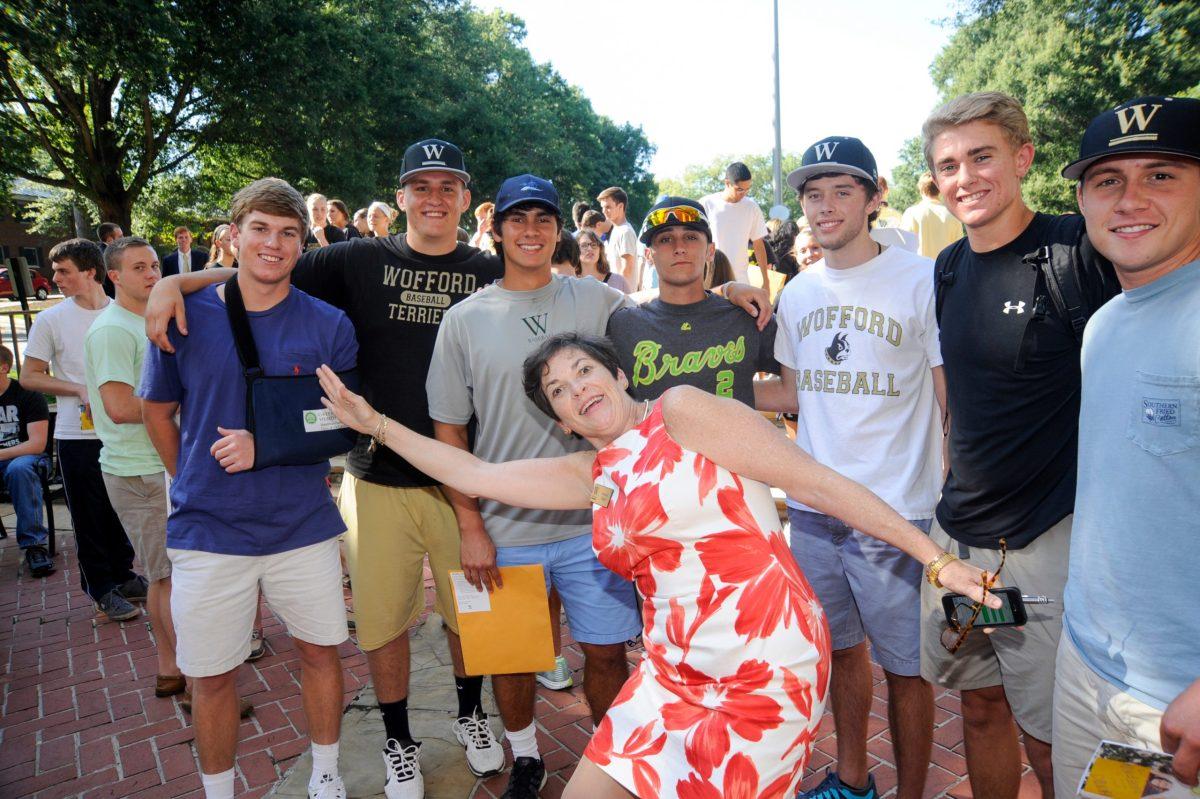ADRESSING CAMPUS RUMORS AND MYTHS WITH DEAN OF STUDENTS—
We’ve all heard our share of myths and rumors across campus in regards to the campus environment, buildings, events and traditions. But as easy as it is easy to listen and spread these myths, some in actuality may not be as true as they seem. Thus, we bring to you Wofford MythBusters, addressing campus rumors and myths – with help from Dean of Students Roberta Bigger. I sat down with Bigger to address a few of the myths flying around campus.
Myth #1: The cost of tuition for next school year is going to significantly increase.
Bigger’s answer: “Yes, it will increase, but not significantly. According to Chris Gardner, the associate vice president for finance for the college, the reasons Wofford, like most other institutions, raises its comprehensive fee annually are varied. First and foremost, crafting an exceptional, transformational educational experience is expensive – and it’s not getting any cheaper. Wofford is continually seeking to maximize and enhance the quality of its academic programs. We believe that these enhancements in quality will benefit all students over time, as they help to increase the perceived value and prestige of a Wofford degree.
Each year, the college must first respond to increases in its costs. Examples of constantly rising costs include:
- Cost of living adjustments for Wofford’s faculty and staff
- Cable, internet and other utilities cost increases
- Food costs, especially the cost of meat
- Upkeep of mature buildings and grounds
Once those rising costs are addressed, the college must invest in strategic priorities designed to enhance the quality of the Wofford education. The college typically invests additional funds into financial aid, to ensure the accessibility of a Wofford education to those who have earned it and to improve the overall quality of the student profile. In addition, the college identifies specific programs that will enhance the Wofford experience, the majority of which are new or enhanced academic programs or new or enhanced student services offerings.”
Myth #2: There’s going to be a Phase VI and VII of The Village.
Bigger’s answer: “Well, you never know. We have for a number of years been talking about tearing down Marsh and building a new residence hall to replace it. There have been drawn plans, students coming in to tell the architects what kind of room they would like, a specific layout for the room, etc. Even when President Nayef Samhat was brand new, there were plans underway to build a new residence hall. However, a detailed analysis regarding Marsh left more questions: What is wrong with the building? What the costs entailed to renovate the building? What were the costs to build a newer building? And also how many more beds does the college need?
If we stick with our goal of having 440 new students each year and controlling the numbers, we hopefully may not need a residence hall larger than Marsh. The one we had proposed was going to have 80 more beds than what Marsh currently has. But now if we control the growth, then what we really would need are a few more rooms in The Village. We talked about it being less expensive for the college to build another building in The Village in the gravel lot end behind Phase III than to build a $25 million residence hall for 280-300 students. And, the other nice advantage of building a smaller building such as another phase in The Village is that you could build one in a much shorter period of time. It would take at least an entire calendar year to build a new residence hall, whereas we already have the plans for those buildings and know exactly how to build another building in The Village.”
Myth #3: After Fraternity Row is torn down in the summer, fraternities will have to use Main Building on the weekends or potentially The Village.
Bigger’s answer: “We are working with IFC to make a list of areas – a list of about six or seven – so that we could tell each organization that we have enough areas on campus to have parties. We have spaces on campus such as: Players Corner, Shipp Hall lounge, Gibbs Stadium plaza, Andrews Field House, the area behind the Papadopoulos Building and the Pavilion. We’ve also talked about places in The Village, not specific apartments, but places near and around it. We have identified areas that we could designate for parties and in addition to that, we want to designate a room on campus where we could say to each specific organization that this is their room for the semester or year to hold their officer meetings, chapter meetings, etc. just so they can have a place to go to so the organizations do not have to operate out of an apartment or residence hall.”






























